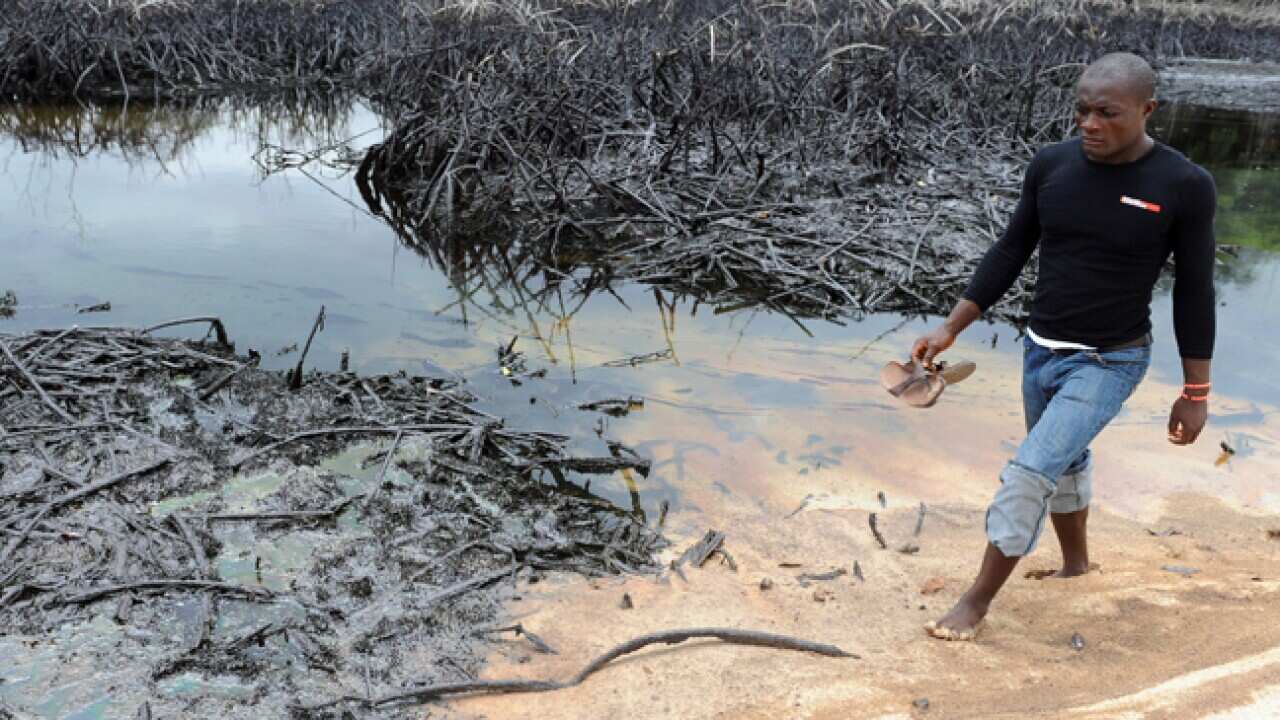Oil giant Royal Dutch Shell on Wednesday accepted responsibility for two devastating oil spills in the Niger Delta which lawyers say have destroyed the livelihoods of a fishing community.
The Bodo community took legal action in Britain against the Anglo-Dutch group over the spills in 2008 and 2009, which affected rivers and waterways over a large area.
The BBC reports that the UN is set to publish a report into the impact of the spills - although it has been funded by the company in question.
Shell is to settle the case under Nigerian law.
Lawyers said the leaks were "one of the most devastating oil spills the world has ever seen" and caused huge damage to the environment and the 69,000-strong community in the Ogoniland region of southern Nigeria.
The first leak occurred in October 2008, and a second spill happened in December that year but was not capped until February 2009, according to London-based law firm Leigh Day and Co., which brought the case in Britain.
A spokesman for Shell's Nigerian operations, the Shell Petroleum Development Company (SPDC), said it would pay compensation but said the process could take several months.
But lawyer Martyn Day, representing the Bodo community, said he would be pressing for "adequate compensation immediately".
"This is one of the most devastating oil spills the world has ever seen and yet it had gone almost unnoticed until we received instructions to bring about a claim against Shell in this country," he said.
"I am pleased that having been notified of the claims, Shell has been acting speedily to put right the terrible damage that has resulted."
He added: "The Bodo people are a fishing community surrounded by water. What was the source of their livelihood now cannot sustain even the smallest of fish."
SPDC, a joint venture operated by Shell, withdrew from Ogoniland in 1993 but a major oil pipeline still passes through the area, according to the group's website.
Ogoniland, in the Niger Delta, is the native region of activist Ken Saro-Wiwa, who led a high-profile campaign against the oil industry but was hanged in 1995 by the then military regime.
"SPDC has always acknowledged that the two spills which affected the Bodo community, and which are the subject of this legal action, were operational," said an SPDC spokesman.
"As such, SPDC will pay compensation in accordance with Nigerian law. The legal process is continuing and could take several months to reach a conclusion."
"The majority of oil spills in the Niger Delta are caused by sabotage and theft, and Bodo is particularly affected by this criminal activity," he added. "In 2011 alone, 13 spills in the Bodo area have been caused by such illegal activity."
Share

